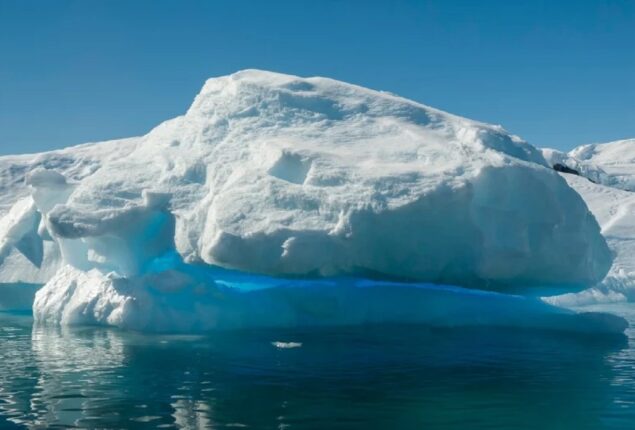Missing soldier’s body found at Siachen glacier after 38 years
In 1984, Chandrashekhar Harbola and 19 others were caught in an avalanche...

Doomsday glacier is at high risk of collapse
Scientists predict that the so-called “doomsday glacier” in Antarctica, so-called due to its high risk of collapsing and threat to the global sea level, could retreat quickly in the next years, raising concerns about the dramatic sea level increase that would accompany its potential extinction.
As the earth heats, the Thwaites Glacier, which can raise sea levels by several feet, is disintegrating along its submerged base. Scientists tracked the glacier’s historical retreat in a study that was published on Monday in the journal Nature Geoscience in an effort to predict what the glacier will probably do in the future.
They discovered that the glacier’s base had become loose from the bottom and was retreating at a rate of 1.3 kilometers per year at some time in the last two centuries.
That is more than twice the rate that researchers have seen over the past few years.
Alastair Graham, a marine geophysicist at the University of South Florida and the study’s lead author, said in a news release that the rapid disintegration might have happened “as recently as the mid-20th century.”
It suggests that once the Thwaites moves past a seabed ridge that is assisting in keeping it in check, it will be able to make a quick retreat in the near future.
“Thwaites is truly hanging on by its fingernails today, and as the glacier retreats beyond a short ridge in its bed, we should expect to observe big changes over small durations in the future — even from one year to the next.”
According to a news release, the 20-hour trip that scanned an underwater region the size of Houston resulted in Monday’s findings, which indicate that the Thwaites is capable of receding far more quickly than previously believed.
Although the team wants to return soon to collect samples from the seabed so they can pinpoint when the previous quick retreats occurred, Graham remarked that this research “was definitely a once in a lifetime mission.” That could aid in the prediction of future changes to the “doomsday glacier,” which Graham claimed this study disproves the theory that it will change slowly.
Graham warned that “just a slight kick to the Thwaites could result in a major response.”
Catch all the World News, Breaking News Event and Latest News Updates on The BOL News
Download The BOL News App to get the Daily News Update & Follow us on Google News.